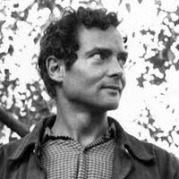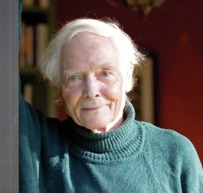
Now that I’ve said something about his awards and prolificacy, I thought I would post some of his poetry. Even if you’ve already read the below poems, they're worth revisiting. Great poems always warrant and reward rereading.
Here’s a haunting poem of his that condemns the Vietnam War:
The Asians Dying
When the forests have been destroyed their darkness remains
The ash the great walker follows the possessors
Forever
Nothing they will come to is real
Nor for long
Over the watercourses
Like ducks in the time of the ducks
The ghosts of the villages trail in the sky
Making a new twilight
Rain falls into the open eyes of the dead
Again again with its pointless sound
When the moon finds them they are the color of everything
The nights disappear like bruises but nothing is healed
The dead go away like bruises
The blood vanishes into the poisoned farmlands
Pain the horizon
Remains
Overhead the seasons rock
They are paper bells
Calling to nothing living
The possessors move everywhere under Death their star
Like columns of smoke they advance into the shadows
Like thin flames with no light
They with no past
And fire their only future
Over the centuries many poets have written about death—Dickinson, Keats, Milton, Thomas Gray and Yeats, to name a few. In the below poem, Merwin finds an ingenious way to talk about his own future death:
For the Anniversary of My Death
Every year without knowing it I have passed the day
When the last fires will wave to me
And the silence will set out
Tireless traveler
Like the beam of a lightless star
Then I will no longer
Find myself in life as in a strange garment
Surprised at the earth
And the love of one woman
And the shamelessness of men
As today writing after three days of rain
Hearing the wren sing and the falling cease
And bowing not knowing to what

Links to Merwin’s poems and basic info on him:
- "W. S. Merwin to Be Named Poet Laureate" (NYT)
- The Poetry Foundation — Merwin’s poetry and a short bio on him
- The Academy of American Poets — Merwin’s poetry and a short bio on him
Link to an archive of literary criticism on Merwin’s poetry:
 RSS Feed
RSS Feed